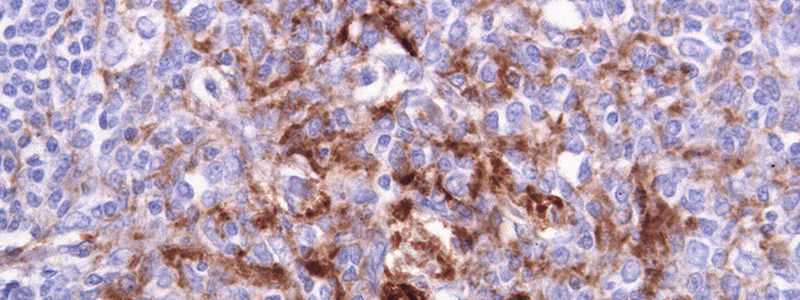ICM: Scientists from the French Blood Bank
(Etablissement français du sang), in collaboration with several
researchers including Stéphane Haïk, team leader at the ICM, have just
developed a biological test capable of detecting the prion responsible
for Variant Creutzfeldt-Jakob Disease (vCJD) in blood. This test also
proves that the agent can be identified one to two years prior to
appearance of symptoms of the disease.
Variant Creutzfeldt-Jakob Disease (vCJD) first appeared in the United Kingdom in 1996 and is a new type of CJD linked to the ingestion of bovine derivatives contaminated by an abnormal prion protein responsible for bovine spongiform encephalopathy. A new wave of vCJD cases may come up in the years to come: developing a test that allows detection of the prion agent responsible for the disease is a major public health challenge.
Thanks to research led by a research team of the French Blood Bank, in collaboration with the National CJD Surveillance Network and the National Prion Reference Center (Inserm, ICM), the National Institute for Agricultural Research and the United Kingdom’s National CJD Research and Surveillance Unit, this test is now available.
In addition to 100% specificity and 100% diagnostic specificity, this test is the first to show that the prion agent responsible for vCJD can be detected in blood before symptoms of the disease appear. Pre-symptomatic diagnosis of a neurodegenerative disease using abnormal protein amplification methodology is now possible with a simple blood test.
This test will help differentiate vCJD from other variants of the disease, evaluate prion elimination and inactivation method efficacy, and will help study the distribution of the infectious agent in different blood fractions.
On the long-term, when the test will become automated, it could help measure the existence of disease-causing agents in the general population.
Reference : Detection of Prions in the Plasma of Pre-symptomatic Blood Donors and Symptomatic Patients with Variant Creutzfeldt-Jakob Disease.
